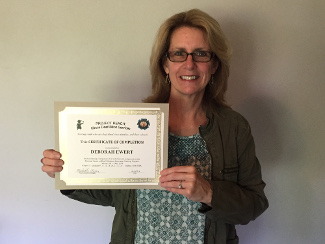Coaching Practitioners of Children Who Are Deaf-Blind
Coaching is a process in which an experienced professional or consultant observes, instructs, and provides feedback—on a regular basis—to a less experienced practitioner, to ensure that he or she is implementing a program or practice correctly. Research indicates that coaching is an important supplement to group training events in developing teachers’ capacity to implement evidence-based practices. It has been estimated that after teachers learn about a new strategy, observe it being demonstrated, and practice it, only about 5% will actually implement it consistently in the classroom. When coaching is added, this estimate rises to 95% (Joyce & Showers, 2002).


Features of Successful Coaching
A number of factors make it more likely that coaching will be successful. They include:
- Well-defined practices. Because the purpose of coaching is to promote the use of specific evidence-based practices, it is essential to clearly define the core components of these practices and how they should be implemented.
- Indicators of practitioner performance. The process of defining an intervention should include the development of indicators to measure the practitioner’s fidelity of implementation.
- Well-prepared coaches. Coaches should have expertise in both the practices being coached and effective coaching techniques.
- Coaching follows training about the intervention. Training usually takes place in a group setting but in some cases may be provided individually by the coach.
- Flexibility. The coaching schedule and content are adapted along the way according to the practitioner’s mastery of the skills being taught.
- Clear distinctions between coaches and supervisors. Supervisors should not serve as coaches (this can lead to role confusion). However, the coach should work with the practitioner’s supervisor to make sure he or she understands and is supportive of the practices being coached.
Resources
Coaching Best Practice Examples
Improving the Use of Effective Practices Through Coaching (Recorded Webinar)
Practice Profile for Coaching (from the National Implementation Research Network)
Forms
CEC Competencies
Initial Specialty Set: Deafblindness (Teachers)
Specialty Set: Special Education Paraeducator Intervener for Individuals With Deafblindness
References
Joyce, B., & Showers, B. (2002). Student achievement through staff development (3rd ed.) [ProQuest ebrary version].
National Implementation Research Network's Active Implementation Hub. (2013). Coaching system development worksheet. Retrieved from
http://implementation.fpg.unc.edu/resources/coaching-system-development-worksheet
National Implementation Research Network. (n.d.). Additional evidence for consultation & coaching. Retrieved from https://nirn.fpg.unc.edu/